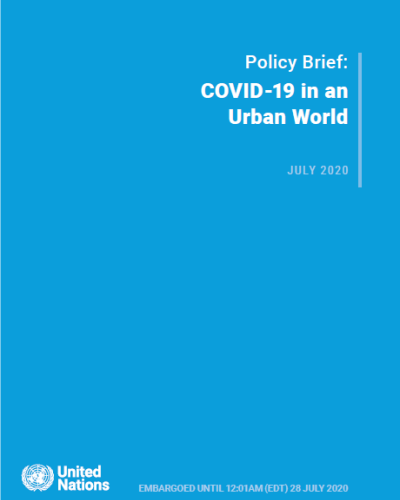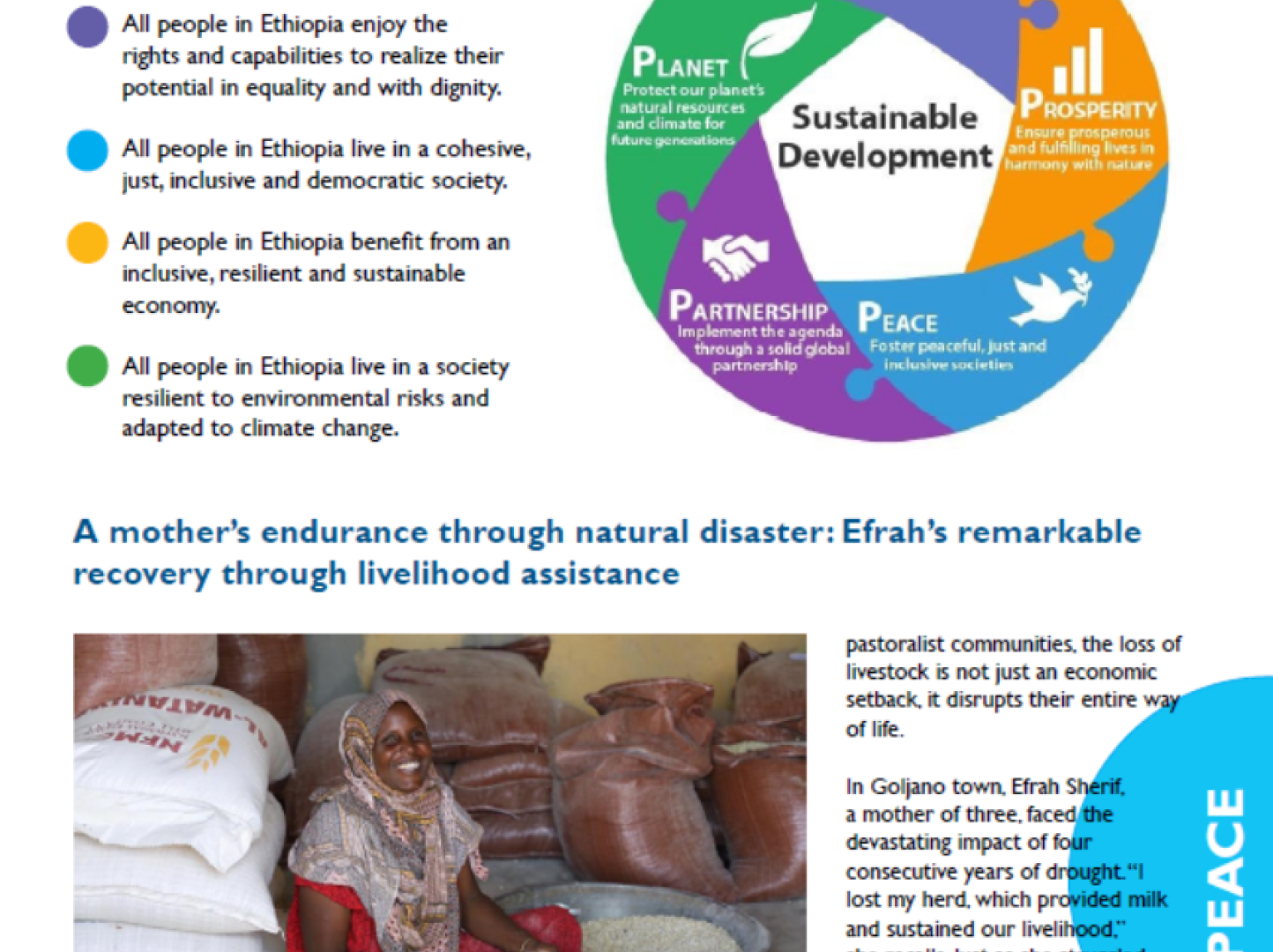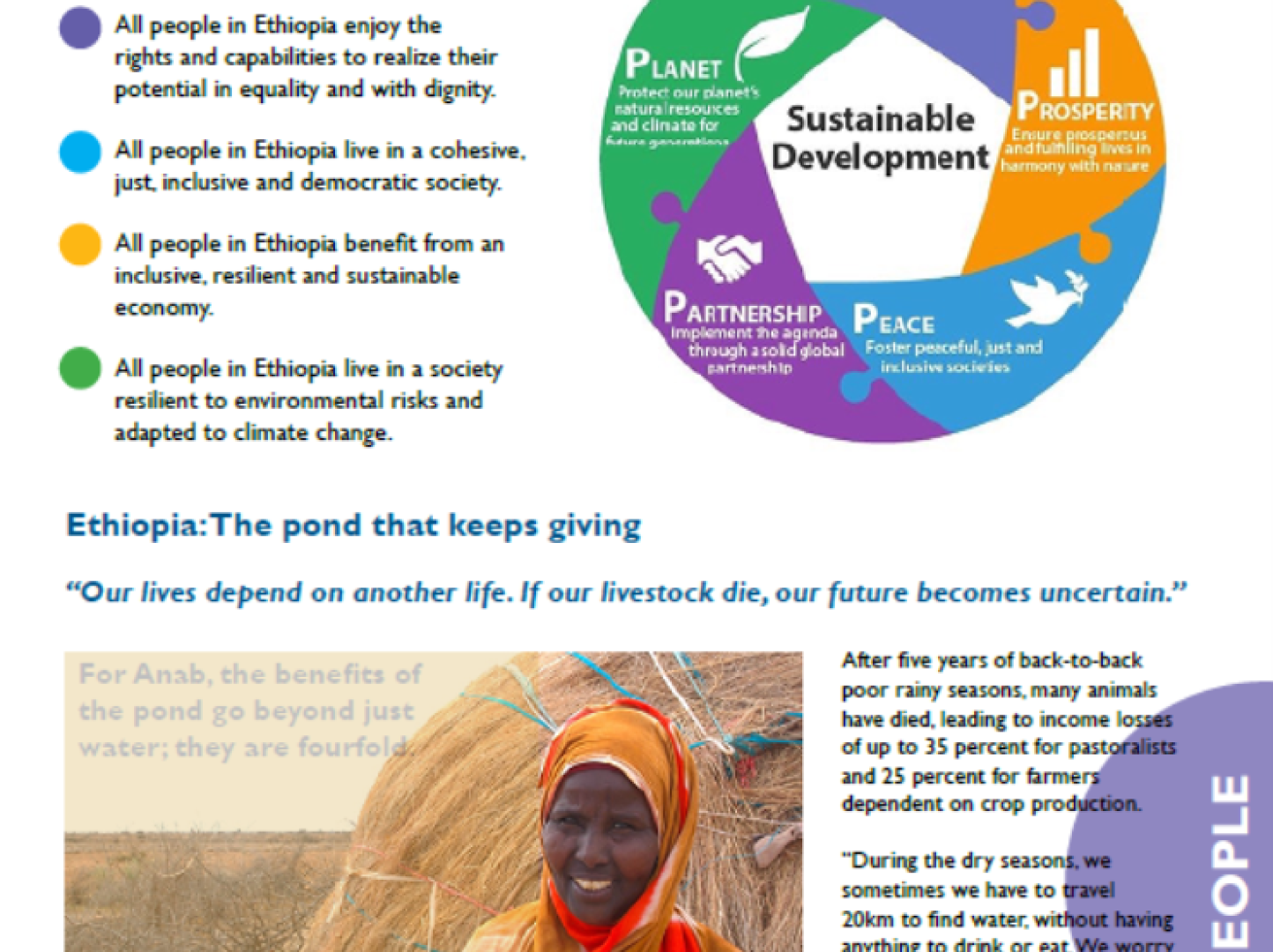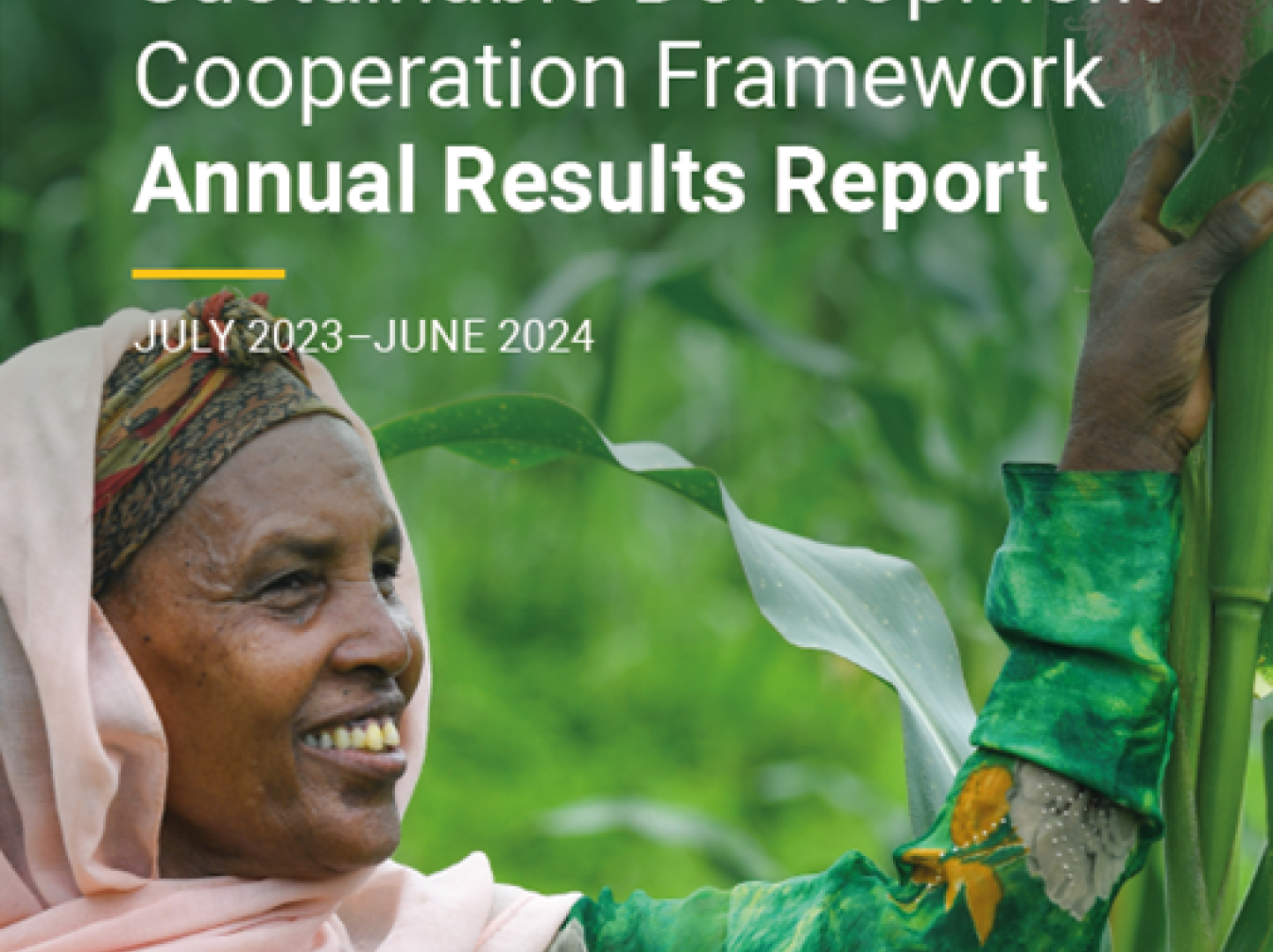Policy Brief:COVID-19 in an Urban World

The remarkable growth of cities in recent decades has intensified many of humanity’s most pressing challenges. It has also presented many of our greatest opportunities to protect people, prosperity and planet. COVID-19 has laid bare – and indeed heightened – both these challenges and these opportunities.
With an estimated 90 percent of all reported COVID-19 cases, urban areas have become the epicentre of the pandemic. The size of their populations and their high level of global and local interconnectivity make them particularly vulnerable to the spread of the virus. On the other hand, there is no evidence to suggest that density per se correlates to higher virus transmission. Cities can manage this crisis and emerge as the hubs of energy, resilience and innovation that make them such vibrant and appealing places for many to live. But this will take conscious policy choices, as this policy brief will show, particularly with respect to inequalities, local capacities and a green, inclusive recovery.
In the near term, for many cities, the COVID-19 health crisis has expanded to a crisis of urban access, urban equity, urban finance, safety, joblessness, public services, infrastructure and transport, all of which are disproportionally affecting the most vulnerable in society.
COVID-19 highlights the critical role local governments play as front-line responders in crisis response, recovery and rebuilding. This is due to their leading role in service delivery, economic development and infrastructure investments. However, business closures, job losses, and other economic impacts have led to declining tax revenues during the crisis, placing significant financial strain on many local governments. Estimates from the World Bank and UN entities suggest that local governments may yield 15 per cent to 25 per cent lower revenues in 2021. Cities with less diversified economic bases have been hit especially hard. Cities with a revenue base reliant primarily on tourism, for example, may see acute economic shrinkage as earnings from international tourism are estimated to decline by as much as 80 per cent in 2020, accompanied by the loss of 120 million jobs. If not addressed, the financial crises that cities may bear could jeopardise crucial urban infrastructure investments, lead to cuts in public services, and undermine broader sustainable urban development efforts.
COVID-19 shutdown measures in urban areas have had economic impacts far beyond their boundaries. Urban economies account for approximately 80 per cent of global GDP. Hours worked across all countries and regions are estimated to have fallen by 14 percent in the second quarter of 2020 relative to the last quarter of 2019, which is equivalent to a loss of 400 million full-time jobs. Globally, the effects have been especially severe in the informal sector, which represents 90 per cent and 67 per cent of total employment in low and middle-income countries respectively. In the first month of the crisis, on average informal workers worldwide lost as much as 60 per cent of their earnings. In Africa and Latin America this figure was nearly 80 per cent. This has had particularly devastating impacts for women. Globally women are overrepresented in the informal economy as well as in the hardest hit sectors, such as tourism, hospitality, and services.
Deep-rooted inequalities, including where in a city a person lives and works and a person’s gender and age, can lead to the pandemic having a disproportional impact on groups that were already in a situation of greater vulnerability. Meanwhile, there is evidence thatCOVID-19 may be more challenging in urban areas with high levels of crime and violence, poor infrastructure and housing, and/ or weak local governance with ill-equipped or under-resourced frontline workers. Limited access to healthcare, basic services and adequate housing and/or public space can further undermine COVID-19 responses.
To safely adhere to coronavirus physical distancing and hygiene guidelines, everyone needs access to adequate housing. Yet the global urban housing crisis forces around 1 billion people or 24 percent of the world’s urban population to reside in slums and informal settlements, exacerbating the impact of the pandemic. With limited or no income during lockdowns, the urban poor in all countries face risk of eviction, while overcrowding in low-quality housing increases the risk of rapid transmission. Housing considerations may also be increasing the vulnerability of women to violence and abuse. Since the pandemic began, levels of gender-based violence have increased at alarming levels in all regions. With mobility restricted, unemployment and poverty rising, the ability of women to flee an abusive situation has become even more constrained.





